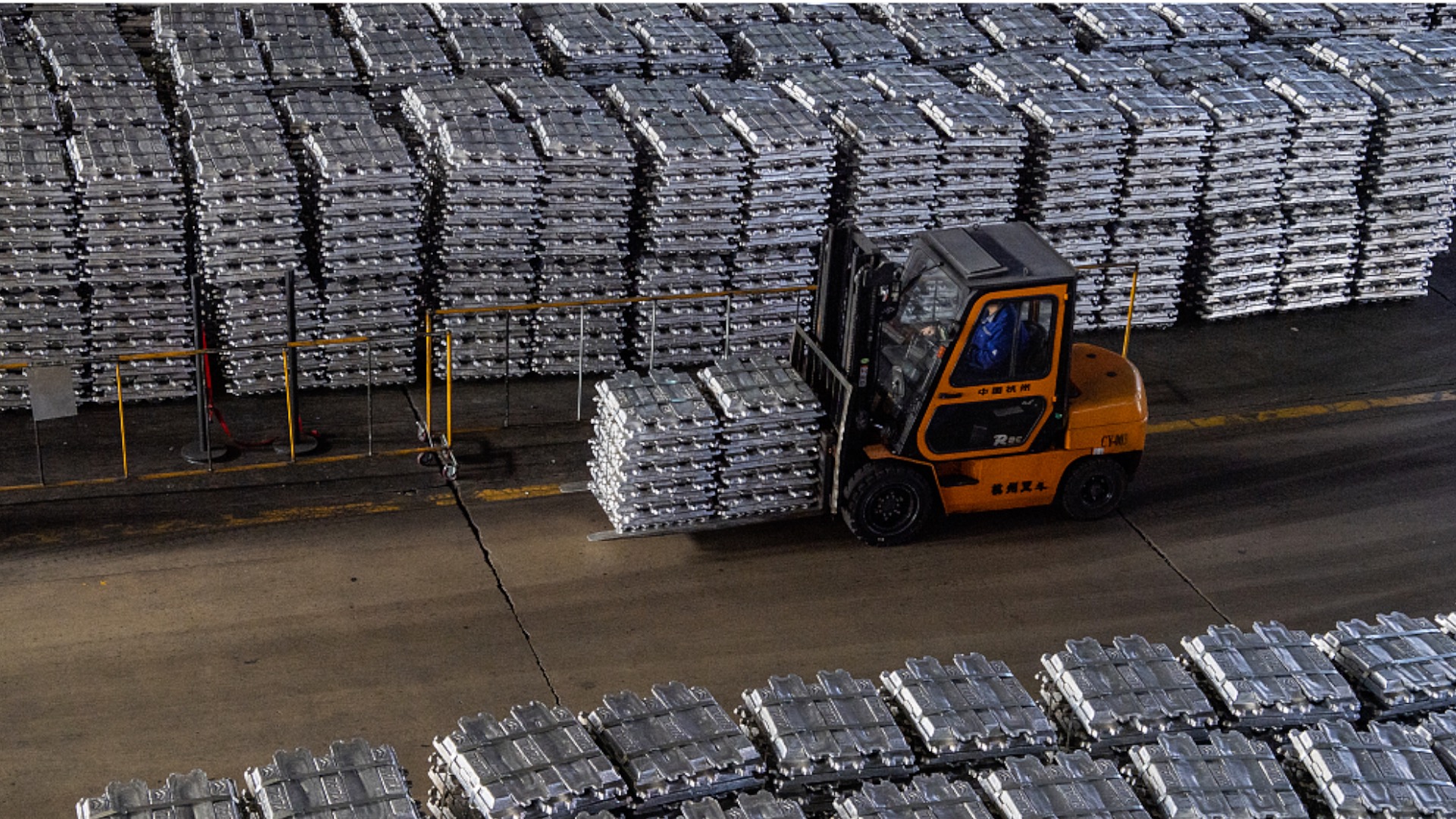02:38

The Russia-Ukraine conflict is inflaming supply disruptions and pushing up commodity prices across the world.
Metal prices have been rising steadily across the world since the beginning of the year. According to global commodity data provider Shanghai Metals Exchange Market (SHMET), aluminum stocks in Shanghai's bonded areas are depleting at a fast pace.
"We have never shipped out so much aluminum in such a short period of time before. It started from this January. For more than a month, we were shipping out 1,000 to 1,500 tonnes every day," said Huang Liang, business manager at Henry Bath Shanghai.
Most of the aluminum ingots shipped from Shanghai's bonded areas are bound for exports, mainly to European markets. As the aluminum price in China now is much lower than that in Europe, analysts say trading firms will actually face a loss if they sell here, even considering freight costs and the exchange rates.
"Trading firms will face a loss in terms of aluminum imports, at almost 1,300 yuan per tonne, which is quite high. So they are now actively exporting these aluminum ingots," said Wang Rong, chief researcher of nonferrous and precious metals at Guotai Junan Futures
The Russia-Ukraine conflict as well as surging energy costs have created a gap in the aluminum prices in China and Europe.
"Energy prices in Europe are surging due to the current uncertainty there, which has forced many aluminum companies to cut down production or even stop production. Also, many European countries have imposed sanctions against aluminum imports from Russia. That's why the aluminum price is high there as it's in short supply," Yang Ju, vice president of Strategic Commodities Institution at Shanghai University of International Business and Economics, told CGTN.
"While in China, the coal price is quite stable now, which means our aluminum production is quite stable. So the aluminum price here is much lower than that in Europe," Yang said.
Yang also noted that China's aluminum prices should be fairly stable in the short term as the government has repeatedly stressed that it will enhance the supervision of commodity prices.
In addition to aluminum, other metals including nickel and zinc are also beginning to leave Chinese warehouses, bound for export.

